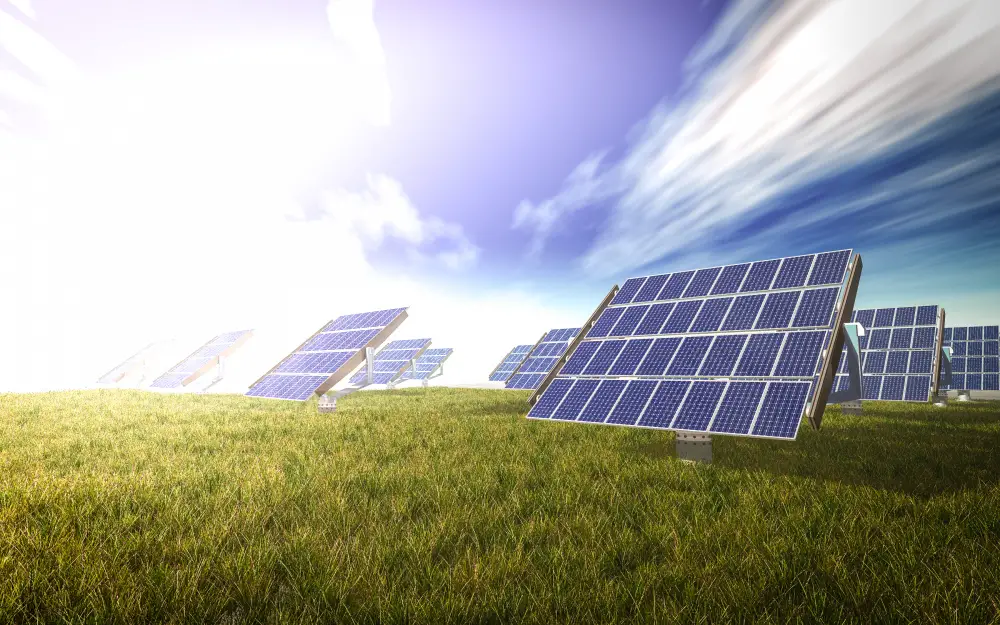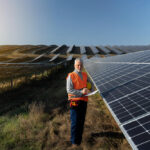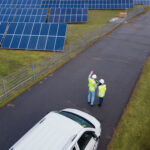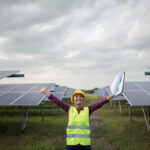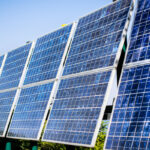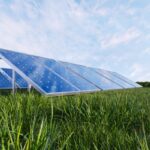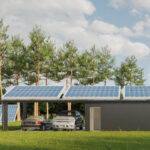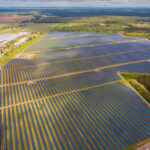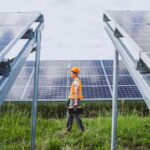Solar farm investment has become an increasingly popular option for those looking to diversify their portfolios and support renewable energy. With the world shifting towards a more sustainable future, solar farms offer a unique opportunity for individuals and businesses to contribute to the clean energy movement while also earning a potential return on their investment. In this blog post, we’ll explore the ins and outs of solar farm investing, including its benefits, risks, and everything in between.
Benefits of Solar Farm Investment
There are several reasons why investing in a solar farm can be an attractive option:
Renewable Energy Source
Solar energy is a clean and renewable source of power that doesn’t produce greenhouse gas emissions, making it an environmentally friendly alternative to fossil fuels. By investing in a solar farm, you’re contributing to the transition towards a more sustainable energy mix.
Potential for High Returns
Solar farms can generate significant returns on investment, particularly if you invest in a project that receives government incentives or subsidies. Additionally, the cost of installing and maintaining solar panels has decreased over the years, making solar farm investments potentially more profitable.
Low Risk
Solar farm investments are generally considered low-risk, as they rely on proven technology and have a stable revenue stream. Once a solar farm is up and running, it requires minimal maintenance and operates for decades with little intervention.
Diversification
Adding solar farm investments to your portfolio can provide diversification, which helps reduce risk and increase potential returns. This is especially true when combined with other alternative investments like real estate or private equity.
Job Creation
Solar farms create jobs, both during construction and operation. By having solar farm on your land, you’re supporting local economic development and contributing to the growth of the renewable energy sector.
Risks Associated with Solar Farm Investment
While solar farm investments offer many benefits, there are some risks to consider:
Regulatory Risks
Government policies and regulations can significantly impact the profitability of solar farms. Changes in feed-in tariffs, tax credits, or other incentives can affect the financial performance of a solar farm, potentially reducing returns.
Technological Risks
Advancements in solar panel technology could lead to lower costs and higher efficiency, but these improvements may also make existing installations less competitive. Additionally, technological failures or defects can reduce the output of a solar farm.
Weather Risks
Solar farms depend on sunlight, so weather conditions can affect their performance. Extreme weather events, such as hurricanes or hailstorms, can damage solar panels and disrupt operations.
Location Risks
The location of a solar farm plays a crucial role in its success. Factors like nearby shading, soil quality, and climate conditions can all impact the effectiveness of a solar farm.
Market Risks
The market demand for electricity can fluctuate, affecting the price at which a solar farm can sell its generated power. If the market becomes oversupplied, it could result in reduced revenues for the solar farm.
Health Risks
While there are several environmental benefits of installing solar farms there are some small health risks associated with it. It includes EMF exposure, glare and visual effects, heat stress and many other disadvantages of living near a solar farm.
How to Invest in a Solar Farm
Investing in a solar farm can take various forms, depending on your preferences and resources:
Direct Ownership
You can directly own a solar farm by purchasing a plot of land, installing solar panels, and selling the generated electricity to the grid. However, this approach requires brief understanding of solar farm financial model, a substantial initial investment and hands-on management responsibilities.
Crowdfunding Platforms for Solar Farm Investment
Crowdfunding platforms allow you to invest in solar farm projects alongside other individuals or organizations. These platforms handle the logistics and management, providing a more accessible way to participate in solar farm investing.
REITs (Real Estate Investment Trusts)
Some REITs specialize in acquiring and managing solar farms, offering a way to invest in multiple projects through a single entity. REITs provide a dividend-based income stream and the potential for long-term capital appreciation.
Solar Funds for Solar Farm Investment
Solar funds are investment vehicles that pool money from various investors to finance solar farm projects. These funds typically offer a diversified portfolio of projects, reducing reliance on a single project’s performance.
ETFs and Mutual Funds
Exchange-traded funds (ETFs) and mutual funds focused on renewable energy or solar industries can provide exposure to solar farms without direct ownership. These funds usually hold a basket of stocks or bonds issued by companies engaged in solar energy production, equipment manufacturing, or other related activities.
Future Trends and Opportunities
Energy Storage and Grid Integration
Advancements in energy storage technologies are poised to revolutionize the solar energy sector. Efficient energy storage solutions enable better grid integration, addressing the challenge of intermittency and enhancing the reliability of solar power. With improved energy storage capabilities, solar farms can provide baseload power, reducing the need for traditional fossil fuel-based power plants. Moreover, energy storage can help mitigate the impact of variable renewable energy sources on the grid, ensuring a stable and reliable energy supply.
Community Solar Projects
Community solar initiatives are gaining traction, allowing individuals and communities to collectively invest in and benefit from solar projects. This inclusive approach broadens access to solar energy and enhances community engagement. By pooling resources, communities can develop and operate solar farms, providing clean energy and economic benefits to participants. Community solar projects also promote education and awareness about renewable energy, fostering a culture of sustainability and environmental stewardship.
Emerging Markets
As solar technology becomes more affordable and accessible, emerging markets present significant opportunities for solar farm investments. These markets often have untapped potential and a growing demand for clean energy solutions. Investing in solar farms in emerging markets not only provides a sound investment opportunity but also supports sustainable development and poverty reduction. By leveraging public-private partnerships, international organizations, and government programs, investors can navigate the complexities of emerging markets and capitalize on the vast potential of solar energy.
Digital Technologies
The convergence of digital technologies and solar energy is creating exciting opportunities for innovation and growth. Advanced data analytics, artificial intelligence, and IoT sensors can optimize solar farm operations, predict energy output, and streamline maintenance processes. These technologies enable solar farms to operate at maximum efficiency, reduce costs, and increase profitability. Furthermore, digital platforms can facilitate the trading of renewable energy certificates, carbon credits, and other environmental attributes, creating new revenue streams for solar farm operators.
Corporate Renewable Energy Purchasing
Corporations are increasingly recognizing the importance of renewable energy in their operations and supply chains. Solar farms can tap into this growing demand by partnering with companies to provide dedicated renewable energy supplies. Corporate renewable energy purchasing can help stabilize cash flows, secure long-term revenue contracts, and diversify the customer base for solar farm developers. This trend is driving the development of offsite solar projects, where corporations can purchase renewable energy directly from solar farms located outside their premises.
Solar-Powered Electrification
Solar energy can play a crucial role in electrifying transportation, heating, and cooling. Solar-powered charging stations for electric vehicles, heat pumps, and thermally activated cooling systems are becoming more prevalent. Solar farms can integrate these technologies, offering customers a comprehensive suite of clean energy solutions. By bundling multiple energy services, solar farm developers can differentiate themselves, increase customer loyalty, and create additional revenue streams.
Agricultural Integration
Solar farms can be designed to complement agricultural activities, such as solar livestock grazing, crop cultivation, or apiculture. Agrivoltaic systems, which combine agriculture and photovoltaics, can increase land productivity, promote biodiversity, and provide an alternative income source for farmers. Agricultural integration can help address land-use concerns, reduce water consumption, and create synergies between food and energy production.
Conclusion
The world’s growing commitment to renewable energy opens doors to diverse opportunities for investors. Solar farm investments, with their potential returns and contribution to a sustainable future, stand out as a compelling option. While risks exist, the advantages of clean energy, job creation, and portfolio diversification make solar farms an attractive choice.

